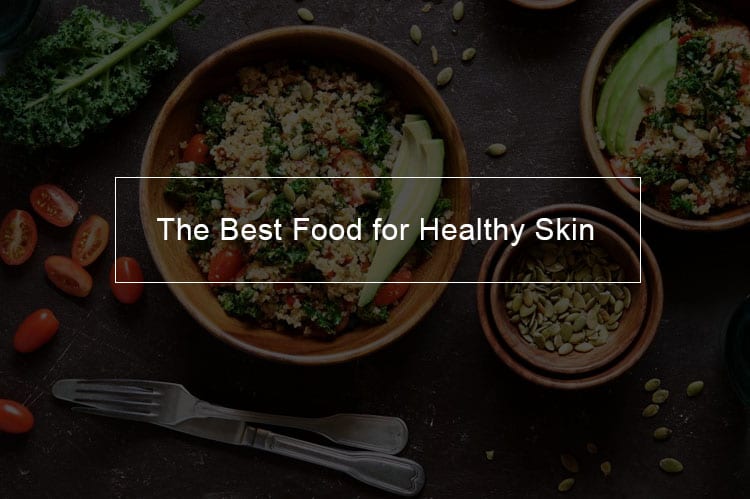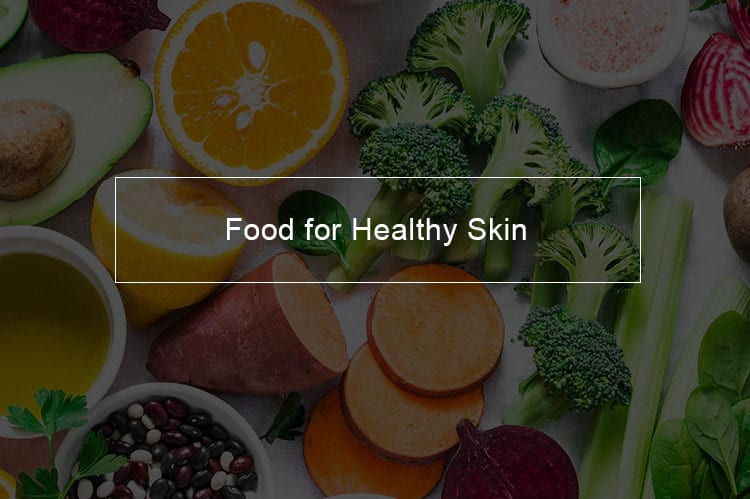
A healthy diet is crucial for a healthy body. What you take in obviously affects your metabolism and your body organs such as the liver, heart, and also your skin. The health, look, and aging of your skin is greatly influenced by what you consume on a daily basis.
What foods help skin heal faster?
The best foods for healing the skin- protein rich foods
The best types of foods to help your skin heal faster are proteins. Below are some foods rich in protein that can be incorporated in your daily diet to help your wounds heal quicker.
Eggs can help with your wounds
As another good source of protein, adding eggs to your diet should be something you should consider. It can be prepared in many different ways and is, therefore, easier to consume regularly without getting fade up. It should, however, be noted that the yolk of an egg is high in cholesterol. This means that if you have heart problems, you should reduce how often you eat eggs.
Can beans help a wound heal faster?
A common source of proteins, beans are very helpful to the skin. You can use black beans, lentils, and split peas in your daily meal for healthy skin that heals faster.
The benefit of nuts in wound healing
Cashew nuts, peanuts, almonds, and all the other nuts are rich in proteins. Pick your favorite and use it as a snack throughout the day, especially if you are nursing a wound. They will help your wound heal faster. This is a healthier snack option compared to sweets, chips, and chocolates.
Different types of milk heal the skin
There are many milk alternatives around, cow milk, coconut milk, almond milk, soy milk, just to name a few. All these alternatives do a very good job of strengthening the body and are full of proteins. The alternatives also cater for people who are lactose intolerant. You, therefore, do not have an excuse to take milk with your cereal every morning and drink it throughout the day as well.
Does chicken help my wounds?
One of the best meat proteins is chicken. This delicacy is enjoyed by almost all cultures all over the world. It can be prepared in many different ways and eaten with many different other foods. However, it is taken; this high-protein meal is good for your healing wounds.
Protein supplements for wound healing
For the picky eaters who cannot consume the other foods on our list, here is something you can try. You should incorporate protein supplements in your diet. There are many protein supplements alternatives, here are the popular ones:
- Soy protein
- Whey protein
- Plant-based protein
After getting your pick, all you do is mix a scoop or two with either milk or water for your protein supplement does.
Which foods are good for the skin?

The best foods for healthy skin
The foods below, if incorporated in your diet, can help maintain healthy looking skin
Fatty fish for healthy skin
Herring, salmon, mackerel, and other fatty fish are really good for healthy skin. Omega-3 fatty acids, which are vital for promoting healthy skin, are very abundant in such fish. They help keep the skin moisturized, thick and supple. Actually, lack of these fatty acids can make the skin to dry.
The omega-3 is also responsible for reducing the inflammation which can lead to acne and redness. In fact, it reduces the skin sensitivity to the UV rays of the sun. Vitamin E is also abundant in these fatty fish. As an important antioxidant, getting sufficient vitamin E is vital for safeguarding your skin from inflammation and free radicals.
The fatty fish is also rich in zinc and quality protein. Zinc is important for skin health, the production of new cells, and regulating inflammation. Proteins, on the other hand, strengthens the skin.
Soy and healthy skin
There is a compound in plants that can either block or mimic estrogen in the body. This compound is called isoflavones and is contained in soy. This compound has a number of benefits to the body, and the skin as well.
Taking soy isoflavones, as studies suggest, can improve the elasticity of the skin and reduce wrinkles in middle-aged women. In older women, it can keep the skin strong and smooth by increasing collagen and improving the dryness of the skin. Isoflavones can also protect the skin against UV radiation and help prevent some types of skin cancer.
Sweet potatoes and healthy skin
Sweet potatoes are a very good source of beta-carotene. These nutrients that are also found in spinach, carrots, and oranges are provitamin A. This means that the body will convert them into vitamin A. About 100g of sweet potatoes that are baked contains beta-carotene equivalent to four times the vitamin A RDI.
Beta-carotene, and other carotenoids, also serve as a sunblock. This antioxidant, when consumed, protects the skin from the harmful exposure to the sun. This eventually prevents wrinkles, sunburns, and dry skin. Regular consumption will also give your skin an orange look with a warm feel, adding to its general health.
Green tea and healthy skin
Green tea has very strong compounds that protect the skin from aging and from damage. These compounds are called catechins which promote the health of the skin is many ways.
Green tea, like the other foods containing antioxidants, protect the skin against the harmful UV rays. It also improves elasticity, thickness, moisture, and roughness. You should, however, avoid taking your green tea with milk. Research suggests that milk has the potential to be counteractive. It could reduce the effectiveness of the antioxidants of green tea.
Avocados for healthy skin
There are many healthy fats in avocados. These fats prove to be advantageous to the body, especially when it comes to getting healthy skin. They help the skin remain moisturized and flexible.
Studies also show that apart from the fats in avocados that make the skin supple and moist, the avocado also has some compounds that protect the skin from the harsh UV damage. This damage can be catastrophic on the skin leading to wrinkles and skin disorders. The vitamin E in avocados protect the skin from any damage from oxidation. Vitamin E and C usually work well together.
Sunflower seeds and healthy skin
Seeds and nuts, especially sunflower seeds, are always good for your skin. About 37% RDI for vitamin E can be found in one ounce of sunflower seeds. The same ounce also packs 5.4 grams of protein, 10% RDI for zinc, and 32% RDI for selenium.
Walnuts for healthy skin
There are many characteristics of walnuts that make them necessary for healthy skin. First of all, they are rich in essential fatty acids, the body needs this, but it cannot make by itself. It is rich in both omega-3 and omega-6 acids, and most importantly, it has these acids in the correct ratio. A lot of omega-6 can cause inflammation and conditions related to inflammation such as psoriasis. However, with the right balance, the fatty acids become useful.
Furthermore, there are nutrients presence in walnut that are essential for the skin to properly function and stay healthy. Only 28 grams of walnuts, that's about an ounce, has 6% RDI for zinc. This helps fight inflammation, bacteria, and also assists in the wound healing process.
Bell peppers and skin health (yellow or red)
Beta-carotene is abundant in bell peppers. This nutrient found in plants is converted by the body into vitamin A. There is approximately 92% RDI for vitamin A in one cup of chopped bell peppers.
Bell peppers contain vitamin C that generates collagen which strengthens the skin. In fact, there is about 317% RDI for vitamin C in just one cup of bell pepper. Eating a lot of vitamin C is usually linked to experiencing fewer wrinkles and dry skin as you age.
Broccoli for healthy skin
Broccoli is rich in vitamin A, zinc, and vitamin C, all of which are important in maintaining healthy skin. Broccoli also has lutein. This is a carotenoid, similar to beta-carotene, that works to protect your skin from the dangers of oxidation which may lead to wrinkled and dry skin.
There is also a very powerful compound found in broccoli florets called sulforaphane. This compound can help protect against UV damage and may also have some anti-cancer characteristics. Sulforaphane works in two stages; first, it gets rid of harmful free radicals then it activates the body's protective systems.
Tomatoes and healthy skin
Tomatoes are good for the skin because they have all the main carotenoids, that is, lutein, beta-carotene, and lycopene. All these protect the skin from the UV damage. This together with the vitamin C present, means that tomatoes can help reduce wrinkles and promote healthy skin. Try taking foods rich in carotenoids with foods rich in fats because fats help absorb the carotenoids.
Dark chocolate and healthy skin
Yes, this is an excuse to eat dark chocolate. Cocoa on your skin is magical. Constant consumption of cocoa powder, which has antioxidants, proved to promote thick hydrated skin, as studies show. It makes the skin smoother, and less scaly improves the blood flow and reduces the sensitivity of the skin to sunlight.
Daily consumption of 20 grams of dark chocolate makes your skin more resilient to the harmful UV rays. In fact, it makes the skin two times more resilient compared to the low-antioxidant chocolates. The chocolate also proved useful in reducing the appearance of wrinkles.
It is important however to make sure the dark chocolate has at least 70% cocoa. This will maximize the advantages of the chocolate and will reduce the added sugar.
Red wine for healthy skin
There is a compound in red wine that makes it a popular anti-aging remedy. Resveratrol, which is from red grapes skin, has numerous health benefits. Furthermore, there are suggestions that resveratrol can reduce the synthesis of the dangerous free radicals which are responsible for causing damage to the skill cell and aging of the skin.
This does not, however, mean that you should start consuming red wine. The amount of resveratrol in the wine cannot justify using the drink as a remedy for young skin. Wine is an alcoholic, that means it comes with its disadvantages. But if you already enjoy the occasional wine, you can be comfortable with the fact that it helps your skin.
What vitamin helps you heal faster?
When recovering from a wound, you need a lot of proteins, zinc, and antioxidants. You also need vitamins, and the best ones for healing the skin are vitamin A, B, and C.
Vitamin A helps in the production of collagen. This is important when it comes to the formation of new skin. More collagen leads to faster wound recovery. Vitamin A is abundant in carrots, oranges, egg yolks, pumpkin, butter, etc.
The significance of vitamin B is that it produces energy. This energy is need by the cells to move and grow. The availability of energy will mean that the wound will get to heal faster.
Vitamin C is the main one when it comes to healing wounds. It helps in the collagen synthesis and the growth of blood vessels. It also has antioxidizing properties which prevent the injury from getting infections. This vitamin also absorbs iron, which helps in cellular development.
Conclusion on the foods that heal the skin
Protein is essential especially if your body is to successfully heal wounds. There are a wide variety of foods that can provide this protein, together with other nutrients needed by the body. Taking the correct diet will show on your body, especially the skin.
Healthy skin is one that is moist, supple and elastic. It is also one that does not have any disorders and one that heals fast. All this is one way or another affected by what you consume. Therefore, make sure you take in all the essential nutrients for the sake of your skin.




